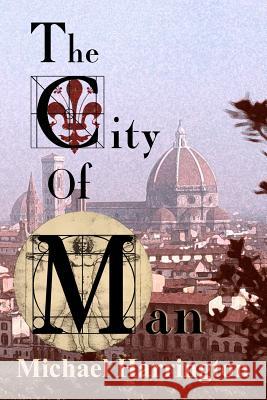The City of Man: A Trilogy » książka
The City of Man: A Trilogy
ISBN-13: 9780615971490 / Angielski / Miękka / 2014 / 550 str.
The City of Man is a trilogy based on a true story of the Italian Renaissance. The three books are structured on Dante's Inferno, Purgatorio, and Paradiso. Renaissance Florence celebrated its Golden Age during the late 15th century under Lorenzo de' Medici, the Magnificent. This was the age of artists, philosophers and poets like Leonardo, Michelangelo, Botticelli, Pico della Mirandola, Poliziano, and Machiavelli. But a societal crisis was imminent by the century's last decade. The Italian peninsula was surrounded and threatened by imperialist powers, trade declined and poverty increased in the face of obscene wealth. Avaricious popes made a family business of the Church while floods, droughts, famines, and the plague all combined to create an atmosphere of overwhelming fear and anxiety. As chaos loomed, an obscure Dominican friar arose to restore order. Fra Girolamo Savonarola was a charismatic preacher and prophet who advocated religious and political reform. His mission was to transform his corrupt and decaying society into St. Augustine's mythical City of God. At the height of his short reign he orchestrated the infamous Bonfire of the Vanities, riding a wave of popular discontent to become the most influential religious, political, and cultural figure of the age. The Savonarolan theocratic republic left its indelible mark on the face of Florence, Italy, and Western history. The City of Man is the dramatic story of this preacher's fantastic rise and tragic fall, symbolizing a critical juncture in the conflict between Church and State in the Christian world. More dramatized history than historical fiction, the story integrates the art, religion, and politics of this glorious period. Young Niccolo Machiavelli provides the counterpoint to Savonarola as he develops his new political philosophy. Their momentous clash illuminates the transition from the Age of Faith to the Age of Reason, heralding the birth of the Modern Age.











